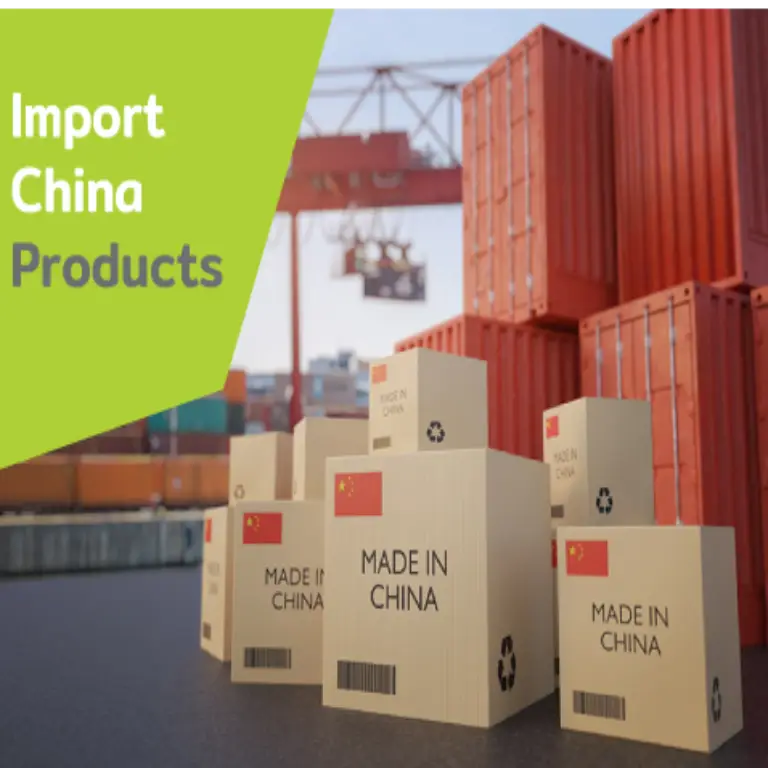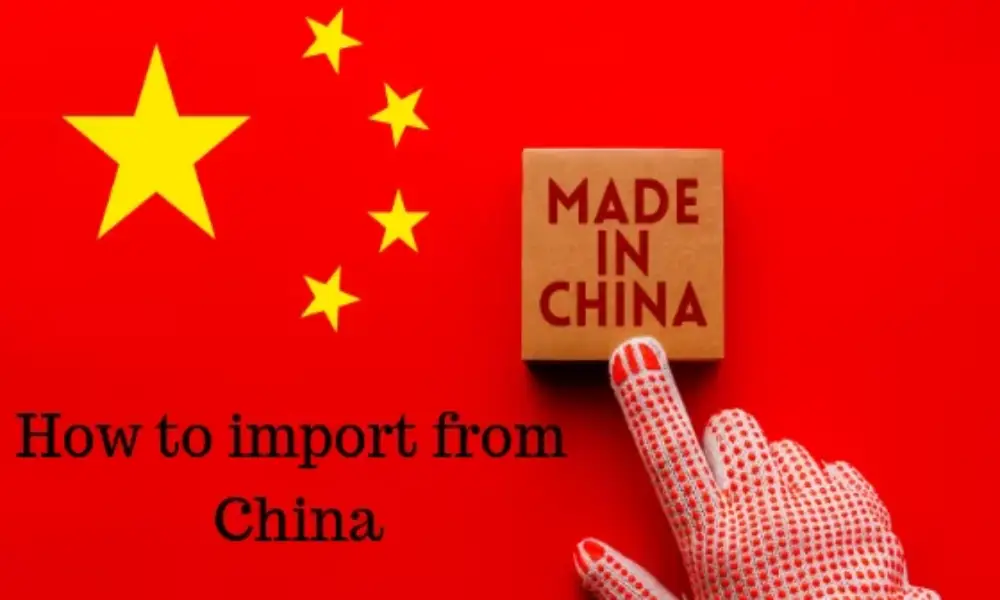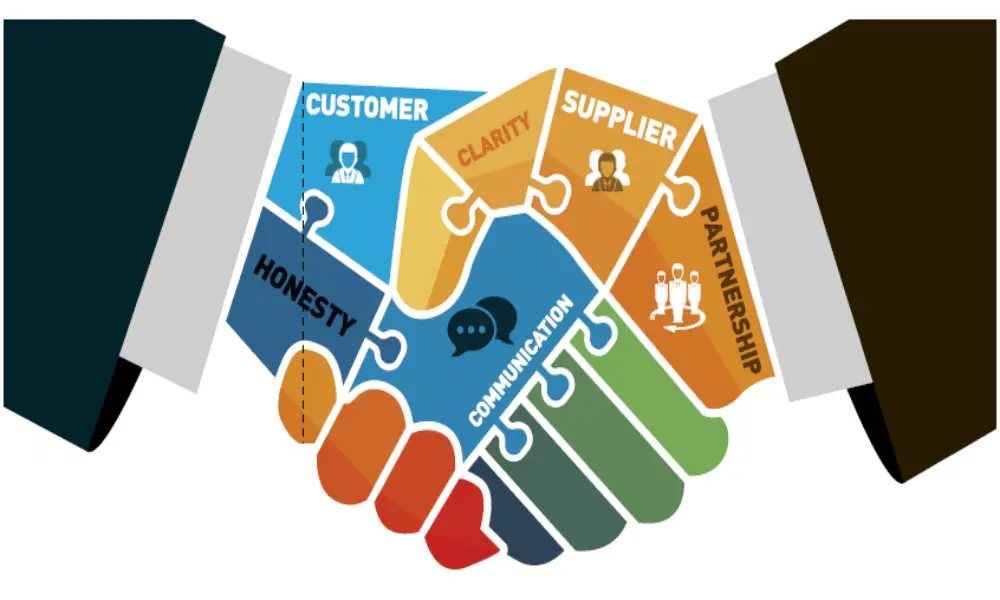
Importing goods from China, often dubbed as the world’s factory, with its vast manufacturing facilities, skilled workforce, and abundant industry experience, can be the perfect way to achieve commercial profitability and secure successful imports.
Although this endeavor holds high profitability and return on investment, it involves many risks due to its complex steps requiring experience and accuracy to avoid costly mistakes.
Don’t worry, we provide you with all the necessary information in this article, summarizing the relevant experiences in the Chinese market to face major suppliers.
Understanding Essential Information for Importing Goods from China
According to market statistics, understand the popular and profitable products people are seeking.
Understand the market size, supply and demand, and consumer nature.
Gather information about competitors, analyze them to determine their strengths and weaknesses, and differentiate yourself to enter the market.
Determine project costs and product prices in the market to ensure feasibility.
Determine quality requirements for sensitive products (electronics, cosmetics, food).
Understand customs requirements for documents and paperwork.
How to Familiarize Yourself with Import Requirements for Various Countries/Regions?
There are three main methods to obtain information related to import requirements for your country/region:
Google Search
You may find many government and public websites through Google that define quality requirements and approval documents.
Market Research
Conduct market research on products of interest to understand how experienced importers import them.
Consult Third-party Procurement Agencies
Consulting third-party procurement agencies for all the information on importing goods from China is the best way.
How to Successfully Import from China?
1. Conducting Research:
Before importing from China, importers should conduct research on products, suppliers, markets, and regulations related to their import business. You should also conduct market analysis and feasibility studies to assess the demand, competition, and profitability of your products. Feasibility studies include differences in product prices in the local market and the cost of obtaining the product from China, including shipping, transportation, customs clearance, etc., so you can know if the project is profitable and how much profit you will make.
2. Finding Reliable Suppliers:
Finding reliable suppliers is crucial for importing from China as it impacts the quality, price, and delivery of products. Importers should use reputable online platforms and directories such as Alibaba, 1688, and Made-in-China.com to search and compare potential suppliers. You should also verify their reputation and credibility by checking their profiles, reviews, ratings, certificates, and recommendations.
Choosing suppliers must consider many important criteria:
Appropriate quality: This means the supplier’s production efficiency and product quality meet your requirements.
Favorable price: That is, prioritize suppliers who offer more favorable prices.
Shipping costs: Choosing the best supplier’s important criterion; for example, choosing a supplier with slightly higher prices but good shipping conditions is acceptable.
Payment terms and better customer service: You can prioritize suppliers who provide good customer service (such as quick response – supplementary services), or provide payment terms suitable for you.
3. Effective Communication:
Effective communication with suppliers is crucial for importing from China as it can avoid misunderstandings, mistakes, and disputes. If necessary, importers should also use professional translation to overcome language barriers.
4. Negotiation Skillfully:
Skillful negotiation with suppliers is crucial for importing from China as it can help importers secure the best prices and terms for their products. Remember that business contacts with Chinese exporters are influenced by Chinese culture and customs and require different negotiation skills and tactics. You should negotiate confidently and respectfully, using facts and data to support their points. You need also be flexible, willing to compromise, and seek win-win solutions.
5. Collaborating with experts:
Importers can collaborate with agents, brokers, consultants, lawyers, accountants, and logistics providers who have knowledge and experience in importing from China. You can also join trade associations, chambers of commerce, and online communities where they can network and learn from other importers.
6. Understanding International Commercial Terms (Incoterms):
When importing bulk goods from China, you must understand the International Commercial Terms (Incoterms) to determine the responsibilities of each party and determine the place of receipt.
Some common international trade terms:
EXW: Ex Works
DAP: Delivered At Place
DDP: Delivered Duty Paid
CFR: Cost and Freight
CIF: Cost, Insurance, and Freight
Top Three Wholesale Import Websites in China You Should Know
Alibaba International
Alibaba International is Alibaba’s B2B platform for foreign trade exports, with an official website traffic of over 100 million per month. With over 300,000 paid members, 12 million registered buyers, and 29 million registered users, it is the largest B2B e-commerce website in China and even globally. It is also the base for many Chinese cross-border e-commerce sellers to sell products globally.
1688 Wholesale Website
1688 Wholesale Website is a large-scale entity sourcing wholesale website under Alibaba, one of China’s top ten high-tech companies, and currently the largest sourcing website in the country. As the leading platform for sourcing wholesale goods, it covers the widest range of product sources. Whether experienced online sellers or new store owners, 1688 is the first choice.
Made-in-China
Made-in-China.com is one of China’s most famous B2B e-commerce websites, divided into international and domestic stations, gathering information on Chinese products. It is one of the preferred websites for domestic small and medium-sized enterprises to engage in online international trade. As of the end of 2012, Made-in-China.com had over 8 million registered members.
In conclusion, importing goods in bulk from China presents significant opportunities for commercial profitability, but it also comes with complexities and risks that require careful navigation. By following the outlined steps and tips, including conducting thorough research, finding reliable suppliers, effective communication, skillful negotiation, collaboration with experts, understanding international trade terms, and utilizing reputable wholesale import websites, importers can enhance their chances of success. With diligence, adaptability, and strategic planning, importing from China can be a rewarding venture, contributing to business growth and global trade expansion.
Share This Story, Choose Your Platform!
We connect you with reliable factories, get the best quotes, deliver straight to your door.


















